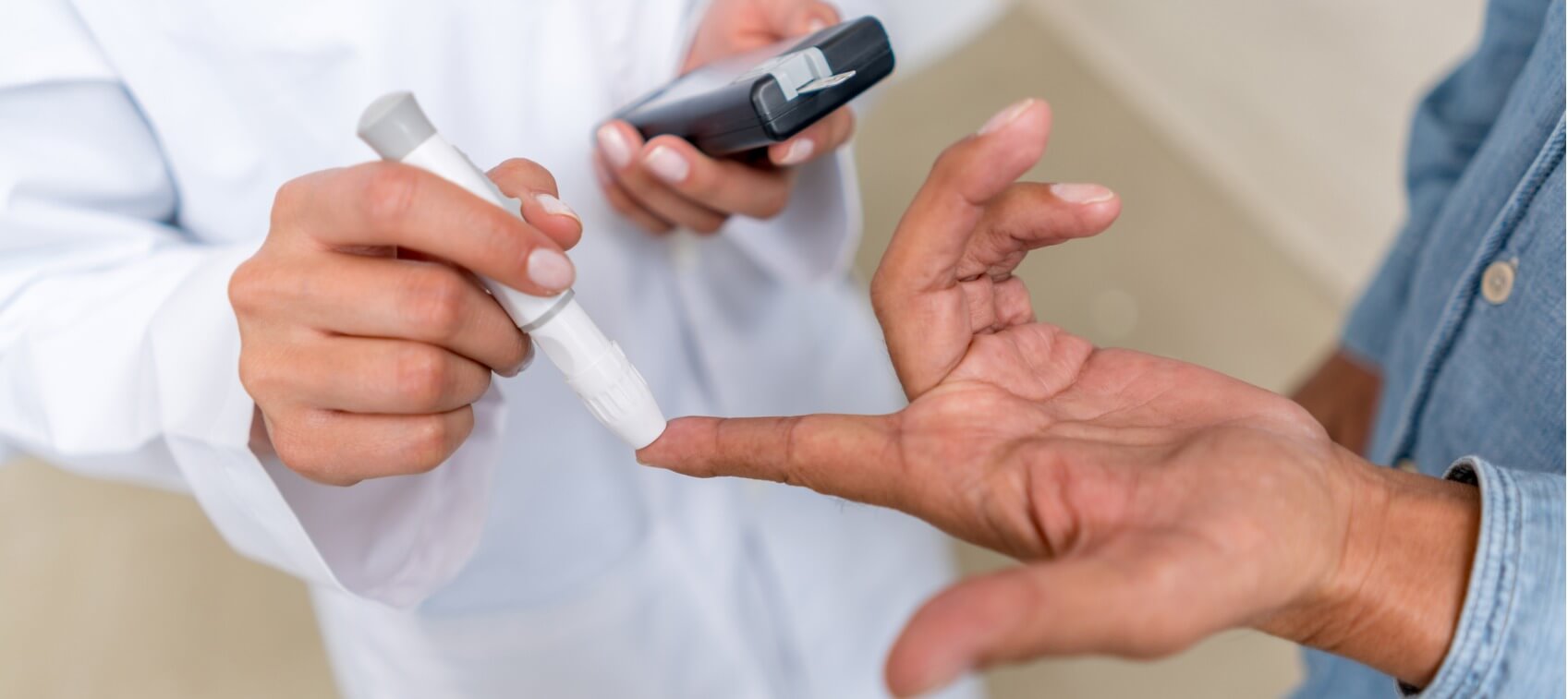
You had a celebration and decided to have a couple of drinks. And the result…High blood sugar levels.
In times like these, you know the reason for the sudden spike in sugar levels.
But sometimes, the levels may shoot up without an apparent cause. In either case, a few strategies can help to manage your sugar levels quickly.
Failing to control sugar levels immediately may result in complications, such as diabetic ketoacidosis.
While certain situations demand immediate management, it is usually best not to quickly reduce sugar levels as that may cause hypoglycemia (blood sugar levels that are too low).
What Is Hyperglycemia?
First, let’s discuss what high blood sugar levels mean.
According to the World Health Organization, fasting blood sugar levels between 100 and 125 are considered borderline high and lifestyle changes are recommended. Fasting levels above 126 mg/dL and post-lunch sugar levels above 200 mg/dL are considered to be diabetic.
If your levels are above normal, you need to take steps to bring them into the normal range.
Complications of High Blood Sugar Levels
One of the major complications of hyperglycemia is diabetic ketoacidosis (DA). When your blood levels start going beyond 250 mg/dL, there is a high DA risk.
Your body cells use glucose for their normal functions. However, in people with diabetes, the cells cannot get adequate glucose in the absence of insulin.
So, your body starts breaking down fats for energy, resulting in the production of ketones.
Other complications of high blood sugar levels include:
- Cardiovascular disorders
- Damage to blood vessels of the eyes or diabetic retinopathy
- Nerve damage or diabetic neuropathy
- Kidney disorders and damage
Keeping your blood sugar levels under control aids in minimizing the risk of these complications.
Ways to Reduce High Blood Sugar Levels
Now that you know the hazards of high blood sugar, here are some ways to help you. In addition, the severity of hyperglycemia can help understand ideal strategies to manage it.
Insulin
If you have insulin-dependent diabetes, rapid-acting insulin may help.
It will help control blood sugar levels before it may cause any complications.
You may already know how to adjust insulin dose depending on your sugar levels. If not, please consult your doctor before doing so.
It is best to check levels 15-30 minutes after injecting insulin to ensure that the levels are not dropping too low.
Exercise
Exercise is an excellent way to manage high sugar levels. This is because physical activity increases your body’s demand for glucose.
As a result, sugar in blood transfers to the muscles, lowering its level in blood. It also improves insulin sensitivity for about 24 hours.
For this effect, exercises that increase your heart rate may help, such as brisk walking and swimming.
Check your blood sugar before starting to exercise.
If it is above 240 mg/dl and ketones are present in urine, avoid exercise as this will increase your blood sugar levels. In addition, avoid strenuous exercises as they can also temporarily elevate glucose levels.
This is because it activates the stress response, triggering glucagon release to power the muscles.
Relaxation Techniques
As stress may be the problem, getting rid of it may help control sugar levels.
Meditation can help manage stress. For example, studies show that mindful meditation may help ease stress and tension.
You can choose either method to clear your head and reduce stress, ultimately benefiting your blood sugar levels.
Include High-Fiber Foods in Diet
Foods rich in fiber slow your digestion. So, glucose from the meal is not quickly thrown in your blood. A review of studies indicates that a diet rich in high fiber foods may prevent high blood sugar levels.
Excellent sources of fiber include:
- Oatmeal
- Bran cereals
- Whole grains
- Sweet potatoes
- Black beans
- Avocados
Consume Adequate Water
You may already know that hydration is beneficial for health. But you may be surprised to learn that low water intake may cause your blood sugar levels to increase.
When your sugar levels are high, the body tries to get rid of them by flushing through urine. Thus, you may end up losing fluids from your body.
If you do not consume enough water, you may not be able to throw excess sugar out of your system. Therefore, it is essential to have at least one to two liters of water a day.
Even if you don’t feel dehydrated, set a reminder to maintain an adequate intake of water.
Have More Electrolytes
High blood sugar levels may deplete your electrolytes, altering levels of potassium, magnesium, and phosphates. In addition, when your sugar levels and urine output is high, your body also loses electrolytes.
Electrolytes are essential for maintaining hydration, and thus you need to replenish them. For a quick fix, opt for an electrolyte drink such as low-fat milk or low-sugar sports drinks.
You can naturally add electrolytes to your diet by consuming sweet potatoes, bananas, seeds, and nuts. They will help to maintain normal levels of your electrolytes and minerals.
Studies show that people with diabetes are usually deficient in magnesium. However, you can take magnesium supplements and add magnesium-rich foods such as:
- Almonds
- Cashews
- Pumpkin seeds
- Plain yogurt
- Spinach
Glutamine Supplements
Glutamine is an amino acid that can boost your intestinal health and immunity. However, people with diabetes usually have low glutamine levels.
A study suggests the insulin-boosting effects of glutamine, making it easier to maintain blood sugar levels. While we need more research, studies do hint at its potential effectiveness.
Apple Cider Vinegar
It is an all-rounder with many health benefits, from improving the tone of your body to managing sugar levels.
A review suggests the benefits of ACV for high blood sugar levels. However, while taking ACV may generally boost your health and does not have significant side effects, it is essential to discuss this with your doctor.
Probiotics
According to a scientific review, daily probiotic use maintains blood sugar levels.
Probiotics are for more than preventing constipation. Introducing healthy bacteria to your diet helps to soothe inflammation and prevent metabolic disease. These bacteria may also help you with blood sugar levels.
So, if you are considering probiotics for digestion, you may have one more reason to try them out.
Add Bitter Melon to Diet
Bitter melon is rich in the substance charantin, which keeps blood sugar levels under control. It also has polypeptide-p, which mimics the action of natural insulin.
Berberine
It is a chemical present in many plants. The use of Berberine dates back thousands of years as it is popular in traditional Chinese medicine.
Some health benefits of berberine may include:
- Weight loss
- Cholesterol reduction
- Blood sugar control
Berberine may also reduce glucose production in the liver and boost insulin sensitivity. Studies on its effects suggest a better control of blood sugar level than a placebo.
While berberine supplements are usually safe, consult your doctor.
Get Adequate Sleep
The National Sleep Foundation suggests having seven to nine hours of sleep per night.
Poor quality sleep alters your body’s chemistry. Getting more slumber may help you with blood sugar levels.
A study proposes lack of sleep as one of the reasons for getting type 2 diabetes. The Lack of sleep increases levels of fatty acids, which may inhibit insulin’s action from regulating blood sugar levels.
In fact, not getting enough sleep may cause other abnormalities, including certain heart conditions and weight gain.
When to Seek Professional Help?
In general, a blood sugar reading of over 180 mg/dL is critical as it may result in complications. If two consecutive readings are higher than 300, consult your physician immediately.
Some signs that may indicate high sugar levels are:
- Increased thirst
- Frequent urination
- High sugar levels in urine
Constant high blood sugar levels need medical attention. Consult your doctor in the presence of the mentioned symptoms.
Tips to Prevent Hyperglycemia Episodes
Some lifestyle changes can help you live well with diabetes and prevent high blood sugar spikes.
Following a Healthy Diet
Maintain carbohydrate intake ideal for you and avoid empty calories from foods such as colas and processed foods.
A healthy diet involves the following:
- Fruits
- Lean proteins
- Whole grains
- Vegetables
Visit Your Doctor Regularly
Regular visits allow your doctor to monitor the progress of your condition. They may also advise you to check your A1C levels. It is a blood test to determine average blood sugar over the last three months.
It can help your doctor understand how well you are managing diabetes.
Maintain A Healthy Weight
Obesity is a risk factor for diabetes. Moreover, losing weight boosts your metabolism, making it easier for you to control your blood sugar levels.
If you have doubts about diet or are finding it difficult to lose weight, consult your doctor or a dietitian.
Take Insulin and Medications Regularly
Skipping insulin or medicines can be harmful and alter your blood sugar levels. It is thus essential to stick to your medication regimen and follow your doctor’s instructions.
Final Thoughts
Try the mentioned tips to manage blood sugar levels immediately. Insulin and exercise are effective ways to manage your problem quickly, but make sure to check with your doctor first, and make sure to monitor your ketone levels on a regular basis.
As always, consult your doctor before making any sudden changes to your diet and lifestyle.


